TCDP Award Recipients
2023 IEEE TCDP Outstanding Technical Achievement Award IEEE Computer Society Technical Community on Distributed Processing (TCDP) has named Professor H. T. Kung of Harvard University as the recipient of the 2023 Outstanding Technical Achievement Award. The citation of the award to Professor Kung is for seminal contributions on concurrency control and systolic arrays in distributed systems.
IEEE Computer Society Technical Community on Distributed Processing (TCDP) has named Professor H. T. Kung of Harvard University as the recipient of the 2023 Outstanding Technical Achievement Award. The citation of the award to Professor Kung is for seminal contributions on concurrency control and systolic arrays in distributed systems.
Professor Kung is one of the world’s most influential research and education leaders in the field of distributed systems. He is William H. Gates professor of computer science at Harvard University. He and his former students created new algorithms, architectures and designs that have led to efficient distributed systems. His early research in parallel computing produced the systolic array in 1979, which has since become a core computational component of hardware accelerators for artificial intelligence, including Google’s Tensor Processing Unit (TPU). Similarly, he proposed optimistic concurrency control in 1981, now a key principle in distributed memory and database transaction systems, including MySQL, Apache CouchDB, Google’s App Engine, and Ruby on Rails. He remains an active researcher, with ongoing contributions to hardware design, parallel computing, wireless networking, signal processing, privacy and security, and artificial intelligence.
Professor Kung is also well-known as an influential mentor. Throughout his career, he has been equally regarded for the role of his own research as for the legacy of his students, who have gone on to become pillars at Y Combinator, Google Brain, IBM, Intel, MediaTek, Stanford, and MIT. Professor Kung received his bachelor’s degree in mathematics from National Tsing Hua University in 1968. He received his Ph.D. degree from Carnegie Mellon University in 1973. He taught at Carnegie Mellon for 19 years before being appointed McKay Professor of Electrical Engineering and Computer Science at Harvard in 1992.
Professor Kung was elected a member of the US National Academy of Engineering in 1993 for introducing the idea of systolic computation, contributions to parallel computing, and applying complexity analysis to very-large-scale-integrated (VLSI) computation. In addition, he is a Guggenheim Fellow, member of the Academia Sinica in Taiwan, as well as president and co-founder of the Taiwan AI Academy, a non-profit organization which has cultivated over 10,000 AI talents for various industries. He received the IEEE CS Charles Babbage Award in 1990, Pittsburgh Intellectual Property Law Association Inventor of the Year Award in 1991, and the ACM SIGOPS Hall of Fame Award in 2015.
2022 IEEE TCDP Outstanding Technical Achievement Award
 IEEE Computer Society Technical Community on Distributed Processing (TCDP) has named Professor Andrew Tanenbaum of the Vrije Universiteit Amsterdam as the recipient of the 2022 Outstanding Technical Achievement Award. The citation of the award to Professor Tanenbaum is for seminal work on microkernels and performance of operating systems, and for authoring textbooks that have educated multiple generations of students, researchers, and practitioners.
IEEE Computer Society Technical Community on Distributed Processing (TCDP) has named Professor Andrew Tanenbaum of the Vrije Universiteit Amsterdam as the recipient of the 2022 Outstanding Technical Achievement Award. The citation of the award to Professor Tanenbaum is for seminal work on microkernels and performance of operating systems, and for authoring textbooks that have educated multiple generations of students, researchers, and practitioners.
Professor Tanenbaum is a global leader on microkernels and operating system design. He is the principal designer of three operating systems: TSS-11, Amoeba, and MINIX. In 1987, Professor Tanenbaum wrote a clone of UNIX, called MINIX (MINi-UNIX), for the IBM PC. It was targeted at students and others who wanted to learn how an operating system worked. Consequently, he wrote a book that listed the source code in an appendix and described it in detail in the text. Within three months, a Usenet newsgroup, comp.os.minix, had sprung up with over 40,000 subscribers discussing and improving the system. One of these subscribers was a Finnish student named Linus Torvalds, who began adding new features to 300MINIX and tailoring it to his own needs. In 1991, Torvalds announced his own (POSIX-like) kernel, called Linux, which originally used the MINIX file system but is not based on MINIX code. Although MINIX and Linux have diverged, MINIX continues to be developed, now as a production system as well as an educational one. The focus is on building a highly modular, reliable, and secure operating system. Professor Tanenbaum has also been involved in numerous other research projects in the areas of operating systems, distributed systems, and ubiquitous computing.
In addition, Professor Tanenbaum is the author or coauthor of five books, which together have been translated in more than 20 languages, in more than 175 editions. He is best known as the author of MINIX, a free Unix-like operating system for teaching purposes, and for his computer science textbooks.
Andrew S. Tanenbaum has a B.S. from MIT and a Ph.D. from the University of California at Berkeley. He is currently a Professor Emeritus of Computer Science at the Vrije Universiteit in Amsterdam. Andrew S. Tanenbaum is a Fellow of the ACM, a Fellow of the IEEE, and a member of the Netherlands Royal Academy of Arts and Sciences. In 1994 he was the recipient of the ACM Karl V. Karlstrom Outstanding Educator Award. In 1997 he won the ACM SIGCSE Award for Outstanding Contributions to Computer Science. In 2007 he won the IEEE James H. Mulligan, Jr., Education Medal.
2022 IEEE TCDP Outstanding Technical Achievement Award
 IEEE Computer Society Technical Community on Distributed Processing (TCDP) has named Professor Willy Zwaenepoel of the University of Sydney as the recipient of the 2022 Outstanding Technical Achievement Award. The citation of the award to Professor Zwaenepoel is for foundational contributions to performance in computer clusters, shared memory, and distributed synchronization.
IEEE Computer Society Technical Community on Distributed Processing (TCDP) has named Professor Willy Zwaenepoel of the University of Sydney as the recipient of the 2022 Outstanding Technical Achievement Award. The citation of the award to Professor Zwaenepoel is for foundational contributions to performance in computer clusters, shared memory, and distributed synchronization.
Professor Zwaenepoel is a global leader in experimental computer science research, with a particular interest in operating systems and distributed systems. He has worked in a variety of aspects of operating and distributed systems, including microkernels, fault tolerance, parallel scientific computing on clusters of workstations, clusters for web services, mobile computing, database replication and virtualization. He is most well known for his work on the Treadmarks distributed shared memory system, which was licensed to Intel and became the basis for Intel’s OpenMP cluster product. His work on high-performance software for network I/O led to the creation of iMimic Networking, Inc, which he led from 2000 to 2005. His current interests include large-scale data stores. He is also considered as one of the world’s most influential research and education leaders in the field of software systems.
Willy Zwaenepoel received his B.S./M.S. from Ghent University in 1979, and his M.S. and Ph.D. from Stanford University, in 1980 and 1984, respectively. He is currently dean of engineering at the University of Sydney. Previously, he has been on the faculty at Rice University and head of the school of computer and communication sciences at EPFL. He has been involved with a number of startups including Nutanix (Nasdaq: NTNX). He was elected IEEE Fellow in 1998 and ACM Fellow in 2000 and received a number of awards for teaching and research, including the IEEE Tsutomu Kanai Award and the Eurosys Lifetime Achievement Award. His main interests are in operating systems and distributed systems.
2022 IEEE TCDP Outstanding Service Award
 IEEE Computer Society Technical Community on Distributed Processing (TCDP) has named Professor Yuanyuan Yang of Stony Brook University as the recipient of the 2022 Outstanding Service Award. The citation of the award to Professor Yang is for significant efforts and contributions to the distributed system research community.
IEEE Computer Society Technical Community on Distributed Processing (TCDP) has named Professor Yuanyuan Yang of Stony Brook University as the recipient of the 2022 Outstanding Service Award. The citation of the award to Professor Yang is for significant efforts and contributions to the distributed system research community.
For more than 30 years, Professor Yang has devoted tremendous efforts to serve the computing community. In particular, she has been an Associate Editor for the ACM’s most influential journal, ACM Computing Surveys since 2017. She has been the Editor-in-Chief for IEEE Trans. Cloud Computing since 2020. She served as the Associate Editor-in-Chief for IEEE Trans. Cloud Computing from 2016-2019. She was the Associate Editor-in-Chief for IEEE Trans. Computers from 2013-2014. She served as an Associate Editor for IEEE Trans. Computers from 2006-2012, IEEE Trans. Parallel and Distributed Systems from 2001-2005 and 2020-present, and Journal of Parallel and Distributed Computing from 2003-2017. In addition, she has served as a general chair, program chair and vice chair for several major conferences and on the program committee of numerous ACM and IEEE conferences in the distributed computing field. She has served on IEEE Fellow Committee from 2020-present and Computer Society IEEE Fellow Evaluation Committee as a Vice Chair in 2015 and 2019 and member for multiple years since 2012. She served as Vice Chair for IEEE Computer Society Technical Committee on Parallel Processing from 2003-2006. Professor Yang has served for ICDCS conference many times. She is the co-Program Chair in ICDCS 2022. She was a Track Chair for ICDCS 2019, and served in the Program Committees in ICDCS’06, ’16, ’20, and ’21.
One unique leadership role Professor Yang has played since 2018 is her Program Director position at the National Science Foundation, where she is leading and shaping the national research program in computer systems architecture and managing about $80M annual budget to support the research activities in U.S. universities. During the pandemic time, she worked tirelessly to ensure the high quality of all panel reviews being interactively processed virtually.
Yuanyuan Yang received her B. Eng and M.S. from Tsinghua University, and M.S.E. and Ph.D. from Johns Hopkins University. She is currently a SUNY Distinguished Professor in the Department of Electrical and Computer Engineering and Department of Computer Science at Stony Brook University. She is a Fellow of the IEEE.
2021 IEEE TCDP Outstanding Technical Achievement Award

IEEE Computer Society Technical Community on Distributed Processing (TCDP) has named Dahlia Malkhi of the Diem Association as the recipient of the 2021 Outstanding Technical Achievement Award. Dahlia Malkhi is an applied and foundational researcher in broad aspects of distributed systems technology.
Dr. Malkhi is presently Chief Technology Officer of the Diem Association working on Diem (homepage), an online payment network for programmable money that has a blockchain technology backbone. She joined the Diem project in 2019 at Novi Financial as research lead and since January 2020 serves as Lead Maintainer of the Diem open-source project. She is a co-inventor of HotStuff, the consensus algorithm that drives the Diem blockchain core.
Dr. Malkhi is one of the world’s most influential technology leaders in reliable and secure distributed systems, co-founder and technical lead of VMware blockchain project,
co-inventor of Flexible Paxos, the technology behind LogDevice,
creator and tech lead of CorfuDB, a database-less database driving VMware’s NSX-T control plane; and co-inventor of the FairPlay project, the first practical secure Multi-Party Computation system.
Dr. Malkhi received her Ph.D., M.S. and B.S. in computer science from the Hebrew University of Jerusalem. In 2014, she co-founded VMware Research and became a Principal Researcher at VMware until June 2019. From 2004-2014, she was a principal researcher at Microsoft Research, Silicon Valley. From 1999-2007, she was a tenured associate professor at the Hebrew University of Jerusalem. In 2011, she was named a Fellow of the ACM for contributions to fault-tolerant distributed computing.
2021 IEEE TCDP Outstanding Service Award

IEEE Computer Society Technical Community on Distributed Processing (TCDP) has named Professor Cheng-Zhong Xu from the University of Macau as the recipient of the 2021 Outstanding Service Award. The citation of the award to Professor Xu is for significant efforts and contributions to the distributed system research community.
Prof. Cheng-Zhong Xu has played an excellent leadership role in distributed computing field. He served as the Chair of IEEE TCDP from 2015 to 2019. He restarted the TCDP Technical Achievement Award and created a new TCDP Service Award. He also formed a new Award Committee and participated all the award committee discussions. Prof. Cheng-Zhong Xu has participated in ICDCS program committees frequently and served as the chair of Best Paper Selection Committee in ICDCS’2021. He has served in the editorial boards of several distributed systems related journals, including IEEE Transactions on Cloud Computing (TCC), IEEE Transactions on Parallel and Distributed Systems (TPDS), IEEE Transactions on Computers (TC), and Journal of Parallel and Distributed Computing (JPDC). He served as a General Co-Chair of IEEE/ACM CCGrid 2015.
Prof. Cheng-Zhong Xu is the Dean of Faculty of Science and Technology and the Interim Director of Institute of Collaborative Innovation, University of Macau, and a Chair Professor of Computer and Information Science. He is a Fellow of the IEEE.
2020 IEEE TCDP Outstanding Technical Achievement Awards

The IEEE Computer Society Technical Community on Distributed Processing (TCDP) has named Professor John Ousterhout from Stanford University as the recipient of the 2020 Outstanding Technical Achievement Award. The citation for Professor Ousterhout is for seminal contributions to infrastructure for large-scale distributed systems.
Professor Ousterhout has made numerous contributions to large-scale and distributed systems. As a graduate student he played a key role in the development of Cm*, the first large-scale distributed multiprocessor. During his PhD dissertation work he developed the concept of coscheduling (now known as gang scheduling); his paper on this topic at ICDCS 1982 was selected as one of two ICDCS High Impact Papers for the 40-year anniversary of the conference. At Berkeley, he and his graduate students created the Sprite operating system, one of the first systems to provide a “single system image” across a cluster of workstations. Along with Mendel Rosenblum, he developed the concept of log-structured file systems; its no-overwrite approach is now used in most large-scale distributed storage systems as well as software for managing flash memory. His more recent work at Stanford has focused on large-scale computing in datacenters. He and his students developed RAMCloud, a distributed storage system that achieves five-microsecond access times by storing all data in DRAM. Along with Diego Ongaro, he created Raft, a new consensus algorithm that is replacing Paxos for many commercial applications. His most recent project is Homa, a new transport protocol that is superior to TCP for low latency communication within a datacenter.
John Ousterhout is the Bosack Lerner Professor of Computer Science at Stanford University. He received a BS in Physics from Yale University and a PhD in Computer Science from Carnegie Mellon University. He was a Professor of Computer Science at U.C. Berkeley for 14 years, followed by 14 years in industry, where he founded two companies (Scriptics and Electric Cloud), before returning to academia at Stanford. He is a member of the National Academy of Engineering, a Fellow of the ACM, and has received numerous awards, including the ACM Software System Award, the ACM Grace Murray Hopper Award, the National Science Foundation Presidential Young Investigator Award, and the U.C. Berkeley Distinguished Teaching Award.

The IEEE Computer Society Technical Community on Distributed Processing (TCDP) has named Professor Miron Livny from University of Wisconsin as the recipient of the 2020 Outstanding Technical Achievement Award. The citation for Professor Livny is for his Influential Contributions of the Condor system to Distributed and High Throughput Computing.
Miron Livny is the John P. Morgridge Professor of Computer Science at the University of Wisconsin – Madison where he is serving as the Director of the Center for High Throughput Computing and the Lead Investigator of Computing Technologies at the Morgridge Institute for Research. He has been serving as the Technical Director of the Open Science Grid and has been collaborating for more than three decades with researchers from a wide spectrum of science domains. Two of these collaborations – the LHC experiments and the LIGO collaboration – were recently awarded Nobel prizes in physics (2013 and 2017 respectively).
Livny’s PhD work on Load Balancing Algorithms for Distributed Processing Systems laid the foundation for research in adaptive load sharing algorithms. It also provided the underpinning principals of sharing and local autonomy for the Condor system that was first deployed in 1985. The original Condor paper was published in ICDCS 1988 and was awarded as one of the two ICDCS High Impact Papers in the 40-year anniversary of the conference in 2020. Experience with the Condor system led him to pioneer the area of High Throughput Computing (HTC) in the mid 90’s. Livny has been promoting the adoption of HTC methodologies and technologies to advance scientific discovery ever since. The widely adopted HTCondor Software Suite embodies four decades of research, software development and experimental evaluation of distributed computing frameworks and technologies. The suite includes novel concepts like the ClassAd language, resource acquisition through Matchmaking, and on-the-fly deployment and configuration of software modules. The impact of his work is also reflected in the growing awareness of the role that HTC is playing in scientific discovery. The fabric of distributed HTC services offered by the Open Science Grid is a clear display of who resource sharing and local autonomy translate in to a powerful distributed research computing infrastructure.
Livny is the recipient of the 2006 ACM SIGMOD Test of Time Award and the 2013 HPDC Achievement Award.
2020 IEEE TDCP ICDCS High Impact Paper Award
To celebrate the 40 years anniversary of the International Conference on Distributed Systems (ICDCS), the IEEE Technical Community on Distributed Processing (TCDP) Award Committee has selected ICDCS High Impact Papers that have profoundly influenced the field of distributed computing systems. The high impact paper awards are sponsored jointly by ICDCS 2020 and IEEE TCDP.
The committee decided to award the following two ICDCS High Impact Papers to
John Ousterhout,
for his paper entitled “Scheduling Techniques for Concurrent Systems” in ICDCS 1982;
https://web.stanford.edu/~ouster/cgi-bin/papers/coscheduling.pdf
Michael J. Litzkow, Miron Livny and Matt W. Mutka
for their paper entitled “Condor – A Hunter of Idle Workstations” in ICDCS 1988.
https://research.cs.wisc.edu/htcondor/doc/icdcs1988.pdf
2019 IEEE TCDP Outstanding Technical Achievement Award
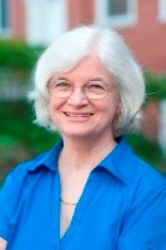
The IEEE Computer Society Technical Community on Distributed Processing (TCDP) has named Professor Nancy Lynch from the Massachusetts Institute of Technology as the recipient of the 2019 Outstanding Technical Achievement Award. The citation for Professor Lynch is for her groundbreaking contributions to the theory and practice of distributed systems.
Professor Lynch is a pioneer in the field of distributed computing. Among many of her foundational theoretical results that stand the test of time, one best-known work is her 1985 paper with Michael Fischer and Michael Paterson on the impossibility of distributed consensus. For many years, this result has guided researchers and practitioners to formulate models of computation that enable the development of realistic algorithms. Another best-known work is her 1988 paper with Cynthia Dwork and Larry Stockmeyer on consensus in the presence of partial synchrony. This work lays the foundation for the Paxos family of protocols, which have been used in many distributed systems products, such as RDMA, Google Spanner, Apache ZooKeeper, Apache Cassandra and others. Professor Lynch is a co-author of the textbooks “Atomic Transactions,” (Morgan Kaufmann, 1994) and “Distributed Algorithms,” (Morgan Kaufmann, 1996). The later has been widely used by students, researchers, and practitioners all over the world. She has also co-authored the monograph “The Theory of Timed I/O Automata” (Synthesis Lectures on Distributed Computing Theory, Morgan Claypool, 2010).
Nancy Lynch is the NEC Professor of Software Science and Engineering in MIT’s EECS department, and an Associate Department Head. She heads the Theory of Distributed Systems research group in the MIT Computer Science and Artificial Intelligence Laboratory. She received her PhD from MIT and her BS from Brooklyn College, both in Mathematics. She is an ACM Fellow, a member of the National Academy of Engineering and the National Academy of Sciences, and a Fellow of the American Academy of Arts and Sciences. She has been awarded the Dijkstra Prize (twice), the van Wijngaarden Award, the Knuth Prize, the Piore Award, and the Athena Lecturer Award. She has supervised approximately 100 PhD students, Masters students, and postdocs.
2019 IEEE TCDP Outstanding Service Award
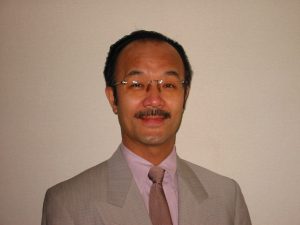
IEEE Computer Society Technical Community on Distributed Processing (TCDP) has named Professor Makoto Takizawa at Hosei University in Japan, the recipient of the 2019 Outstanding Service Award.
Professor Takizawa has made long-term and high quality service to the ICDCS conference. He has served as PC chairs, general chairs, and workshop chairs for 10 times since 1994. In addition, Professor Takizawa has played his leadership roles for organizing several other IEEE conferences. From 2003 to 2008, he was a member of the Board of Governors in the IEEE Computer Society.
2018 Outstanding Technical Achievement Award
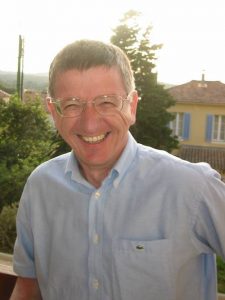
The IEEE Computer Society Technical Community on Distributed Processing (TCDP) has named Professor Michel Raynal from University of Rennes, France as the recipient of the 2018 Outstanding Technical Achievement Award. The citation for Professor Raynal is for his contributions to theory and algorithms of distributed computing and his research leadership in ICDCS.
Professor Raynal is a world leader in the field of distributed computing. He has made significant contributions to distributed computing. These include algorithms for mutual exclusion and quorums, detection of unstable predicates, data consistency, causal order, checkpointing, vector clocks, consensus protocols, failure detectors, and k-set agreement problem. His is best known in several most efficient algorithms in distributed computing. For example, his work on the causal ordering algorithm (with Andre Schiper and Sam Toueg in 1991) is now the standard algorithm in the area. His work on optimal communication-induced checkpointing, optimal implementation of vector clocks, and the algorithm for conjunctive predicate detection remain the best-known algorithms in the field. His work on failure detectors and consensus has influenced many researchers in the area and his Omega-based protocol for consensus is another classical reference in the field.
Professor Raynal has frequently published in ICDCS, a flagship IEEE conference in distributed computing since the first meeting in 1979. He has published more than 20 papers in ICDCS, and received Best Paper Awards three times (1999, 2000, and 2001). Professor Raynal has written 12 books in distributed computing. His Book on Algorithms for Mutual Exclusion (MIT press, 1986) is an earliest literature in this topic, and has been widely used for students, researchers and practitioners.
Michel Raynal is a Professor of Computer Science at University of Rennes, France. His scholarship has been recognized by elections as a member of the Academy of Europe and a senior member of Academic Institute of France. He received the Prize for Innovation in Distributed Computing in 2015. This prestigious award is presented annually at the International Colloquium on Structural Information and Communication Complexity (SIROCCO).
2018 Outstanding Service Award
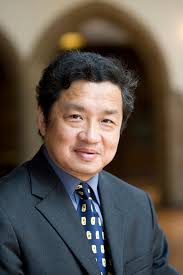
IEEE Computer Society Technical Community on Distributed Processing (TCDP) has named Professor Jie Wu at Temple University, the recipient of the 2018 Outstanding Service Award.
Professor Jie Wu has played an excellent leadership role in distributed computing field. He chaired TCDP from 2005 to 2012. Under his leadership, TCDP started an annual award to recognize outstanding leaders in the field. Since 2018, the annual TCDP award is given in two categories of outstanding service and outstanding technical contributions. Professor Wu has also made long-term and high quality service to the ICDCS conference. He was the General Chair of ICDCS 2013, and has served as vice chairs and PC members many times. In addition, Professor Wu has played his leadership roles for organizing several other IEEE conferences. He was the general chairs of IEEE MASS 2006 and IPDPS 2008, and Program Chairs of IEEE MASS 2004 and IEEE INFOCOM 2011. Professor Wu is a Fellow of the IEEE.
2008-2009: Prof. Kenneth P. Birman
 Ken Birman [http://www.cs.cornell.edu] is The N. Rama Rao Professor of Computer Science at Cornell University. Consistency, reliability and data replication have been themes of his work for nearly thirty years, and many of today’s large cloud-computing platforms (for example, IBM Web Sphere, Microsoft Enterprise Clustering and a number of Amazon’s “gossip-based” subsystems) draw on ideas first explored by his group.
Ken Birman [http://www.cs.cornell.edu] is The N. Rama Rao Professor of Computer Science at Cornell University. Consistency, reliability and data replication have been themes of his work for nearly thirty years, and many of today’s large cloud-computing platforms (for example, IBM Web Sphere, Microsoft Enterprise Clustering and a number of Amazon’s “gossip-based” subsystems) draw on ideas first explored by his group.
Birman’s best known work was on the Isis Toolkit, which introduced the virtual synchrony model, and became central to the French air traffic control system and US Navy AEGIS. Isis also operated the New York Stock exchange for more than a decade and was used in hundreds of financial, process-control and data center settings. Other widely cited systems created by Birman and his team include the first widely used publish-subscribe message bus (the “News” subsystem in Isis); the Astrolabe platform for scalable monitoring, data aggregation and system management; the Bimodal Multicast, and the Kelips 1-hop DHT. On the more theoretical side, Birman went on to merge the virtual synchrony model with the state machine replication model used by Paxos, to create a powerful new model for dynamically reconfigurable services. He pioneered the analysis of gossip-based protocols, and has been a leader in applying optimization techniques to distributed systems resource management and similar problems. Reiter and Birman introduced the first dynamic group key replication protocol, to secure groups of components that must tolerate faults and allow new members to join at runtime.
The author of several books and more than 200 journal and conference papers, Dr. Birman was Editor in Chief of ACM Transactions on Computer Systems from 1993-1998, is a Fellow of the ACM and the winner of the 2009 IEEE Kanai Award. He has also founded and was CEO of three companies (Isis Distributed Systems, Reliable Network Solution and Web Sciences), and has consulted extensively for the industry, the US government, and the military.
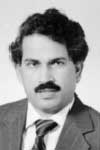 Dr. Chita R. Das (homepage) is a professor in the Department of Computer Science and Engineering. His primary research interests include computer architecture, parallel and distributed computing, clusters, interconnnection networks, processor management in multiprocessors, Internet QoS, mobile computing, performance evaluation and fault-tolerant computing.
Dr. Chita R. Das (homepage) is a professor in the Department of Computer Science and Engineering. His primary research interests include computer architecture, parallel and distributed computing, clusters, interconnnection networks, processor management in multiprocessors, Internet QoS, mobile computing, performance evaluation and fault-tolerant computing.
2007-2008: Prof. Richard M. Karp
 Richard M. Karp (homepage) was born in Boston, Massachusetts on January 3, 1935. He attended Boston Latin School and Harvard University, receiving the Ph.D. in 1959. From 1959 to 1968 he was a member of the Mathematical Sciences Department at IBM Research. From 1968 to 1994 and from 1999 to the present he has been a Professor at the University of California, Berkeley, where he held the Class of 1939 Chair and is currently a University Professor. From 1988 to 1995 and 1999 to the present he has been a Research Scientist at the International Computer Science Institute in Berkeley. From 1995 to 1999 he was a Professor at the University of Washington. During the 1985-86 academic year he was the co-organizer of a Computational Complexity Year at the Mathematical sciences research Institute in Berkeley. During the 1999-2000 academic year he was the Hewlett-Packard Visiting Professor at the Mathematical Sciences Research Institute. The unifying theme in Karp’s work has been the study of combinatorial algorithms. His 1972 paper, “Reducibility Among Combinatorial Problems,” showed that many of the most commonly studied combinatorial problems are NP-complete, and hence likely to be intractable. Much of his work has concerned parallel algorithms, the probabilistic analysis of combinatorial optimization algorithms and the construction of randomized algorithms for combinatorial problems.
Richard M. Karp (homepage) was born in Boston, Massachusetts on January 3, 1935. He attended Boston Latin School and Harvard University, receiving the Ph.D. in 1959. From 1959 to 1968 he was a member of the Mathematical Sciences Department at IBM Research. From 1968 to 1994 and from 1999 to the present he has been a Professor at the University of California, Berkeley, where he held the Class of 1939 Chair and is currently a University Professor. From 1988 to 1995 and 1999 to the present he has been a Research Scientist at the International Computer Science Institute in Berkeley. From 1995 to 1999 he was a Professor at the University of Washington. During the 1985-86 academic year he was the co-organizer of a Computational Complexity Year at the Mathematical sciences research Institute in Berkeley. During the 1999-2000 academic year he was the Hewlett-Packard Visiting Professor at the Mathematical Sciences Research Institute. The unifying theme in Karp’s work has been the study of combinatorial algorithms. His 1972 paper, “Reducibility Among Combinatorial Problems,” showed that many of the most commonly studied combinatorial problems are NP-complete, and hence likely to be intractable. Much of his work has concerned parallel algorithms, the probabilistic analysis of combinatorial optimization algorithms and the construction of randomized algorithms for combinatorial problems.
Dr. Karp has made very significant contributions in the field. His current activities center on algorithmic methods in genomics and computer networking. He has over 120 publications in books, journals, and conference proceedings. He has earned a number of honors for his work, including: the U.S. National Medal of Science, Turing Award, Fulkerson Prize, Harvey Prize (Technion), Centennial Medal (Harvard), Lanchester Prize, Von Neumann Theory Prize, Von Neumann Lectureship, Distinguished Teaching Award (Berkeley), Faculty Research Lecturer (Berkeley), Miller Research Professor (Berkeley), Babbage Prize and eight honorary degrees. He is a member of the U.S. National Academies of Sciences and Engineering, the American Philosophical Society and the French Academy of Sciences, and a Fellow of the American Academy of Arts and Sciences, the American Association for the Advancement of Science, the Association for Computing Machinery and the Institute for Operations Research and Management Science.
2006-2007: Dr. Wei Zhao and Dr. Benjamin W. Wah
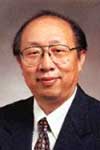 Wei Zhao (homepage) is currently the Dean of the School of Science at Rensselaer Polytechnic Institute. Before he joined RPI in 2007, he was a Senior Associate Vice President for Research at Texas A&M University. Between 2005 and 2007, he also served as the Director for the Division of Computer and Network Systems in the National Science Foundation. He completed his undergraduate program in physics at Shaanxi Normal University, Xi’an, China, in 1977. He received his M.Sc. and Ph.D. degrees in Computer and Information Sciences at the University of Massachusetts at Amherst in 1983 and 1986, respectively. During his career, he has also been a faculty member at Amherst College, the University of Adelaide, and Texas A&M University.
Wei Zhao (homepage) is currently the Dean of the School of Science at Rensselaer Polytechnic Institute. Before he joined RPI in 2007, he was a Senior Associate Vice President for Research at Texas A&M University. Between 2005 and 2007, he also served as the Director for the Division of Computer and Network Systems in the National Science Foundation. He completed his undergraduate program in physics at Shaanxi Normal University, Xi’an, China, in 1977. He received his M.Sc. and Ph.D. degrees in Computer and Information Sciences at the University of Massachusetts at Amherst in 1983 and 1986, respectively. During his career, he has also been a faculty member at Amherst College, the University of Adelaide, and Texas A&M University.
As an IEEE Fellow, Wei Zhao has made significant contributions in distributed computing, real-time systems, computer networks, and cyber space security. His research group has been recognized by receiving various awards and prizes, including the outstanding paper award from the IEEE International Conference on Distributed Computing Systems, the best paper award from the IEEE National Aerospace and Electronics Conference, an award on technology transfer from the Defense Advanced Research Program Agency, and the 2nd prize in the international ACM student research contest. Dr. Zhao is an inventor for two U.S. patents and has published over 250 papers in journals, conferences, and book chapters.
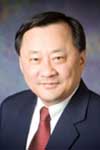 Benjamin W. Wah (homepage) received the PhD degree in computer science from the University of California, Berkeley, in 1979. He is currently the Franklin W. Woeltge Endowed Professor of Electrical and Computer Engineering and a professor of the Coordinated Science Laboratoryof the University of Illinois at Urbana-Champaign, Urbana, IL. Previously, he had served on the faculty of Purdue University (1979-1985), as a program director at the US National Science Foundation (1988-89), as Fujitsu Visiting Chair Professor of Intelligence Engineering, University of Tokyo (1992), and McKay Visiting Professor of Electrical Engineering and Computer Science, University of California, Berkeley (1994). In 1989, he was awarded a university scholar at the University of Illinois; in 1998, he received the IEEE Computer Society Technical Achievement Award; in 2000, the IEEE Millennium Medal; in 2003, the Raymond T. Yeh Lifetime Achievement Award from the Society for Design and Process Science; and in 2006, the IEEE Computer Society W. Wallace-McDowell Award and the Pan Wen-Yuan Outstanding Research Award.
Benjamin W. Wah (homepage) received the PhD degree in computer science from the University of California, Berkeley, in 1979. He is currently the Franklin W. Woeltge Endowed Professor of Electrical and Computer Engineering and a professor of the Coordinated Science Laboratoryof the University of Illinois at Urbana-Champaign, Urbana, IL. Previously, he had served on the faculty of Purdue University (1979-1985), as a program director at the US National Science Foundation (1988-89), as Fujitsu Visiting Chair Professor of Intelligence Engineering, University of Tokyo (1992), and McKay Visiting Professor of Electrical Engineering and Computer Science, University of California, Berkeley (1994). In 1989, he was awarded a university scholar at the University of Illinois; in 1998, he received the IEEE Computer Society Technical Achievement Award; in 2000, the IEEE Millennium Medal; in 2003, the Raymond T. Yeh Lifetime Achievement Award from the Society for Design and Process Science; and in 2006, the IEEE Computer Society W. Wallace-McDowell Award and the Pan Wen-Yuan Outstanding Research Award.
Dr. Wah’s current research interests are in the areas of nonlinear search and optimization, multimedia signal processing, and computer networks. He cofounded the IEEE Transactions on Knowledge and Data Engineering in 1988 and served as its editor-in-chief between 1993 and 1996, and is the honorary editor-in-chief of Knowledge and Information Systems. He currently serves on the editorial boards of Information Sciences, the International Journal on Artificial Intelligence Tools, the Journal of VLSI Signal Processing, World Wide Web, and Neural Processing Letters. He had chaired a number of international conferences, including the 2000 IFIP World Congress and the 2006 IEEE/WIC/ACM International Conferences on Data Mining and Intelligent Agent Technology. He has served the IEEE Computer Society in various capacities, including as vice president of Publications (1998 and 1999) and president (2001). He is a fellow of the AAAS, the ACM, and the IEEE.
2005-2006: Dr. Ming T. Liu and Dr. John A. Stankovic
